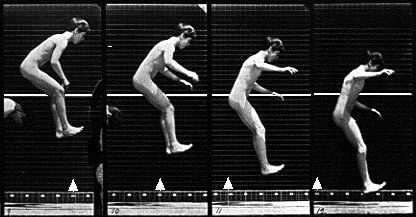
Fashioning the Body: Versions of the Citizen, the Self, and the Subject
The Evergreen State College | Fall 2007-Winter 2008
User Login |
Corpus - Rap and Brecht
Here is my (hypo)thesis: rap is Brechtian. What I think is Brechtian about rap is that it creates an alienation effect. Brecht talks about the alienation effect in acting as the actor presenting herself playing a character. The point is that the audience shouldn’t get swept up in the character, but should always realize the character is a specific person in a specific place and time being played by another specific person in a specific place and time. Rap music, in my view, is more centered around persona than other forms of popular music. Generally, there are a handful of people who were involved in the production of the song. There’s the rapper, the producer, maybe a featured rapper, maybe a featured singer for the hook, and that’s about it. And you know who these people are. Often they even introduce themselves at the beginning of the song. For example, Ayo Technology by 50 Cent, which Emily wrote a great blog post a few weeks back, starts with 50 saying “So special. Unforgettable. 50 Cent. Justin. Timbaland. God damn.” Even when not introduced in this way, rappers generally are speaking to the listener about themselves, not just expressing emotions for us to be moved by. Guests rappers are common on tracks by pop or R&B singers, and they almost always are speaking as a separate persona from the singer. I like to think of Brecht as offering us a way of noticing universalist discourses in productions of art. Dramatic theater, in his view, provokes us to say, “Of course, that is exactly how it is, there was no choice” about every decision a character makes. Epic theater forces us to realize that characters are located within history and within discourses, and there is nothing universal about their decisions. Other forms of music, such as rock, tend to present emotions. They also tend to erase their technological production/mediation. We are encouraged to feel along with the singer. Rappers, like Brechtian actors employing an a-effect, present themselves playing a character. So I would argue that rap is like the epic theater. It rejects universalism. As a sidenote, hip-hop music has had a huge effect on pop and R&B music (and vice versa, of course). The three are often combined in specific songs, and these are often the songs that have the biggest success. I would argue that the Brechtian aspects of rap that I am writing about here are part of what transfers to pop and R&B music as they co-mingle with hip-hop.
Submitted by Spencer on Mon, 12/03/2007 - 3:17pm. Spencer's blog | login or register to post comments | printer friendly version
|
Who's onlineThere are currently 0 users and 1 guest online.
Events
|
|||||||||||||||||||||||||||||||||||||||||||||||||